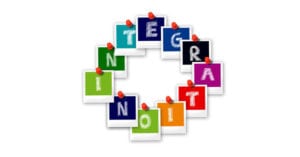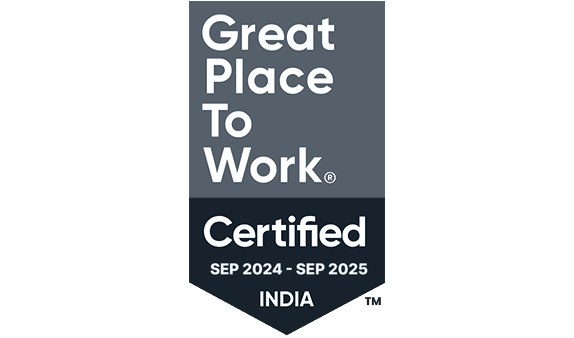What Is ERP and How Does it Work
ERP stands for enterprise resource planning. It is a type of business software that helps organizations manage and automate their various business processes, from accounting and human resources to customer relationship management and supply chain management.
ERP systems typically include a central database that stores information about all aspects of the business, including customers, vendors, employees, inventory levels, financial data, etc. This information can be accessed by authorized users from anywhere in the organization, making it easier for businesses to manage their operations more effectively and efficiently.
There are many different vendors that offer ERP systems, and each one offers a different set of features and functionalities. However, all ERP systems share some common core components, such as:
- Accounting
- Inventory management
- Human resources
- Customer relationship management (CRM)
- Supply chain management (SCM)
ERP systems can be implemented in a variety of ways, depending on the needs of the organization. They can be deployed on-premise, meaning they are installed and operated on the organization’s own servers and infrastructure. Alternatively, ERP systems can be offered as a cloud-based service, which is typically more affordable and requires fewer IT resources to maintain.
No matter how it is deployed, an ERP system can help businesses automate and streamline their operations, making it easier to manage their overall business.
How Do ERP Systems Work?
ERP systems are designed to streamline the various different processes and departments within a company into a single, unified system. This can make it much easier for businesses to keep track of their operations and ensure that everyone is working towards the same goals.
One of the main ways that ERP systems do this is by providing a central database for all of the different departments within a company to use. This means that instead of each department having its own separate database, everyone can access the same information. This can make it much easier to spot errors and inconsistencies, while also allowing you to generate reports and analytics.
Another way that ERP systems can help businesses is by automating many of the tasks that are typically carried out manually. This can free up time for employees to focus on more important tasks, and it can also help to reduce the chances of human error.
Finally, ERP systems can provide businesses with a way to connect with their customers and suppliers. By using an ERP system, businesses can exchange information with their customers and suppliers more easily and efficiently. It helps improve communication and collaboration, and lets you track orders and inventory levels.
ERP systems can be extremely beneficial for businesses of all sizes. However, it is important to remember that they are not magic bullets, and they will not solve all of a company’s problems. It is still important to have a well-thought-out business strategy in place and to make sure that all employees are properly trained in how to use the system.
are thinking about implementing an ERP system in your business, it is important to do your research and choose a system that will fit your specific needs.
What Are the Five Major Processes in an ERP System?
The five major processes in an ERP system are: inventory management, order management, warehouse management, shipping and receiving, and accounts payable and receivable. An ERP system integrates all of these processes into one cohesive system that can be accessed by all employees within a company. This allows for greater efficiency and accuracy across all departments, as well as real-time visibility into the entire business operation.
Inventory management is the process of tracking and managing inventory levels, orders, and stock locations. This includes keeping track of what products are in stock, how much of each product is available, where products are located in the warehouse, and when products need to be reordered.
Order management is the process of tracking and managing customer orders. This includes taking customer orders, tracking the status of each order, and ensuring that orders are fulfilled correctly and in a timely manner.
Warehouse management is the process of tracking and managing inventory levels, stock locations, and shipping schedules. This includes keeping track of what products are in stock, where products are located in the warehouse, and when products need to be shipped out.
Shipping and receiving is the process of tracking and managing the shipping and receiving of products. This includes taking in shipments, checking for accuracy, and delivering products to customers.
Accounts payable and receivable is the process of tracking and managing financial transactions. This includes invoicing customers, paying suppliers, and reconciling accounts.
Why Use an ERP System?
There are many reasons why you might want to use an ERP system within your organization. Here are some of the benefits that you can expect:
-
Increased Efficiency
An ERP system can help to increase efficiency within your organization by automating various processes. This can free up time for employees to focus on other tasks and can help to improve overall productivity.
-
Improved Decision-Making
ERP systems can provide managers with real-time data that can be used to make informed decisions about the business. This information can be used to make improvements to processes, products, and services.
-
Reduced Costs
An ERP system can help to reduce costs by streamlining processes and eliminating the need for duplicate data entry. This can save your organization money on labor costs and can help to improve profitability.
-
Enhanced Customer Service
ERP systems can help to enhance customer service by providing employees with the information they need to be able to provide efficient and effective service. This can help to improve customer satisfaction and loyalty.
-
Improved Collaboration
ERP systems can provide a platform for improved collaboration between employees, departments, and partners. This can lead to better communication and coordination, which can improve overall efficiency.
-
Increased Flexibility
ERP systems can provide your organization with the flexibility to adapt to changing needs and demands. This can help you to stay competitive in today’s ever-changing business environment.
-
Improved visibility into business processes
ERP systems can give managers and executives better visibility into the various business processes within their organization. This can help to identify areas of improvement and make the necessary changes to improve efficiency.
-
Greater Scalability
An ERP system can be easily scaled to meet the growing needs of your organization. This can help you to avoid the need for multiple complex and expensive software solutions.
-
Easier Integration With Other Systems
ERP systems are designed to be easily integrated with other software solutions. This can help to improve overall efficiency and can make it easier to manage your organization’s data.
-
Improved Security
ERP systems can provide improved security for your organization’s data. This can help to protect your information from unauthorized access and can help to ensure that only authorized personnel has access to it.
Read: Signs you need ERP software systems
Conclusion
As we have seen, ERP is a powerful tool that can help businesses to manage their operations more effectively. It can streamline processes and make information more readily available, helping businesses to save time and money. While ERP systems can be complex, they can offer considerable benefits to those who invest in them.
When choosing an ERP system, it is important to consider the specific needs of your business and ensure that you select a system that will be able to meet those needs. With the right ERP system in place, your business can reap the many rewards that it has to offer.
How can we help you?
We have hundreds of highly-qualified, experienced experts working in 70+ technologies.









